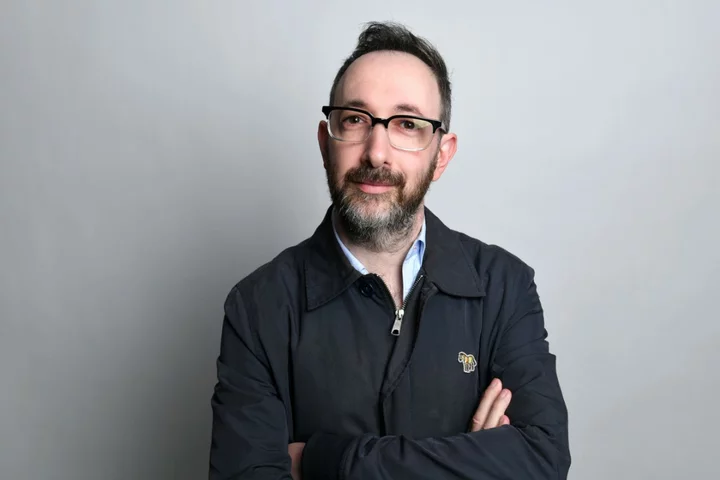
Comedian Ashley Blaker on why he wants to ‘change the conversation’ around children with special needs
Parenting is hard enough when you only have one or two children. So imagine how tough it can be when you have six kids – which is the case for comedian and television producer Ashley Blaker. Blaker, who’s worked on shows including Little Britain and starred in the Radio 4 series 6.5 Children about his family, has six children aged between nine and 19, two of whom have autism and ADHD, and one, who’s adopted, with Down’s Syndrome. But despite the busy load, he’s keeping a smile on his face – although he wholeheartedly admits that family life for him and his wife Gemma, a headteacher, can be challenging, particularly in relation to caring for their 15-year-old daughter Zoe, who has the mental age of a four-year-old. “We’ve really worked hard to support each other, and to make our family work,” he says. “There have been many, many times that things go a bit wrong. We have so much to worry about, it’s actually often the small stuff that gets us. “Being a parent can put you in a vulnerable place, and it can be the very littlest thing that throws everything awry. When a child has a meltdown or the support you were expecting didn’t arrive or whatever, then it can throw a massive spanner in the works.” Blaker, 48, explains that his eldest son Adam, now 19, was diagnosed with autism and ADHD when he was three – he had speech delay and was completely non-verbal until age six, ate a very restricted diet, and “he was very hard to control, very wild – he had a lot of behaviour issues”, his dad shares. His third son Dylan, now 16, was diagnosed with autism and ADHD at age six, and Blaker says both boys’ diagnoses benefitted the whole family. “It’s been a very, very helpful thing,” he explains. “My third son in particular has a very positive attitude towards his diagnosis – he loves having autism, and his diagnosis has allowed him to navigate his life in a more serene way.” The diagnoses have also helped the boys get extra support at school, and medication, and have definitely been a positive for Blaker and his wife as parents. “From our point of view as parents, it’s allowed us to go – ok, we’re not just inadequate parents,” says Blaker. “It would have been very easy to view ourselves as very bad parents, so getting that diagnosis was a very important and positive step towards being kinder to ourselves.” Despite the undeniable challenges of raising the four children they had at the time, the Blakers decided to adopt Zoe when she was two, when many couples may have shied away from adopting a child with Down’s syndrome. Why did they decide it was the right choice for them? It’s a question Blaker can’t really answer, admitting that he and his wife weren’t even considering adoption – but saw a local council advert about Zoe and answered it. It turned out to a life-changing decision both for her and for them, that they have absolutely no regrets. “She brings us unbelievable joy – she’s the greatest blessing in our life,” he says. “She’s in many ways the most impressive member of our family – probably because she’s the only one who shares none of my genes,” he jokes. “There are many challenges, but there’s such a wonderful innocence about her that sets her apart from most 15-year-old girls. She’s not on Snapchat, she’s not on the phone all night, she’s never made me take her to see Harry Styles in concert. She’s an absolute joy to be with – you can make her laugh incredibly easily, she’s the easiest audience in the world.” But despite the absolute joy Zoe and her brothers and younger sister bring to their parents, there’s no denying the Blakers’ family life is a long way from ‘normal’ – which is one of the reasons Blaker has just written a book about his unusual family, Normal Schmormal (HarperCollins, £16.99). “I really wanted to write the book that I wish I’d read 16 years ago, when my eldest son was diagnosed,” he says. “I read a lot around the subject at the time, and it was very depressing and worrying. I wanted to change the conversation a little bit on the subject of children with special needs, from being something depressing and worrying to something that’s positive, and makes our family who we are. Who wants to be normal anyway?” After Blaker finished writing the book, he was himself diagnosed as autistic with ADHD, at age 48. “Especially now I have my own diagnosis, I feel even more that it’s like: who wants to be normal anyway?” he says. “I’d lived with autistic sons over 18 years, but it was somehow only on writing about them and their hyper-fixations and sensory needs and social awkwardness that I thought I could have been writing about myself. “So I thought I’d like to at least find out – I think everyone, children included, has a desire to understand themselves, to know who they are, and explain certain aspects of their life.” So, how did his two autistic sons react when they learned their dad shared their conditions? “My eldest son was completely disinterested,” he says, “but my third son found it kind of funny. His exact words were, ‘I always knew there was something wrong with your semen’. But I do think that for both of them, it’s deepened our bond.” It’s impossible not to admire Blaker and his wife for their dedication to their family and the decisions they’ve made. Blaker concedes that he’s proud of himself – but “even prouder of my children”. He says being incredibly organised and having set routines – which he points out that kids, particularly those with special educational needs, love – has really helped the family over the years. But have he and Gemma ever had time for a break? In the past they’ve taken holidays without each other, leaving the other parent with the kids, just to get time away, he says. But he thinks taking a break is vital for carers, be they parents or otherwise, which is why he’s supporting Sense, the charity for people who are deafblind or have complex disabilities, with a new campaign highlighting the issue. The charity found 65% of carers are burnt-out or exhausted. “It’s really important to get a break, and it’s another reason why diagnoses can be crucial, because it opens up a wealth of help, like respite care,” says Blaker. “There’s a lot of help out there, but those things often need diagnoses. It’s like the magic key that opens everything up.” Ashley Blaker is supporting Sense’s new Give Carers a Break campaign. Read More Charity boss speaks out over ‘traumatic’ encounter with royal aide Ukraine war’s heaviest fight rages in east - follow live Moschino celebrates 40 years of fashion with spectacular catwalk show From tailoring to florals: 5 key fashion trends to know for autumn/winter Cue the damson decor trend to snug up your space
1970-01-01 08:00
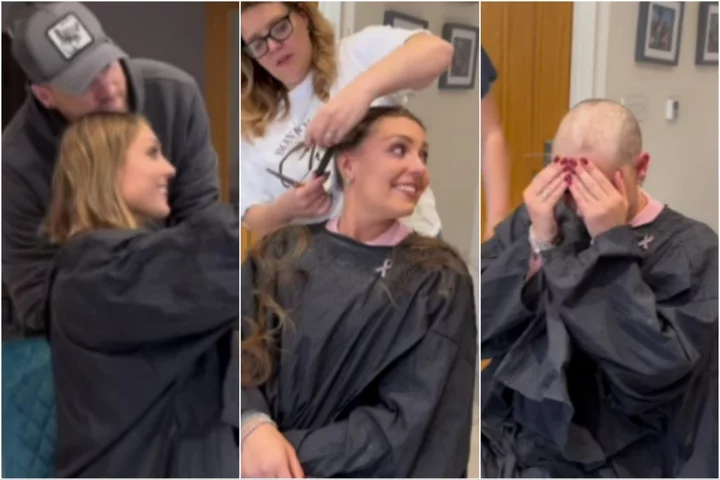
Strictly’s Amy Dowden shares ‘hardest step’ of cancer journey as she shaves her head
Amy Dowden has shared “the hardest step” of her cancer journey with fans as she shaved her head. The Welsh dancer, who has competed on Strictly Come Dancing since 2017, was diagnosed with breast cancer in May. She is currently undergoing chemotherapy. Dowden, 33, has been documenting the journey for her fans, and recently described in a candid video how she “cries every day” as her hair falls out due to treatment. On Thursday (21 September), with Dowden over halfway through her chemotherapy, the dancer made the brave decision to “take control” and shave her head. In a montage shared on Instagram, Dowden was shown dabbing at her eyes while her “loved ones” cut off chunks of her hair down to a short, cropped style. The remaining hair was then shaved off, with the Strictly star growing more emotional and pausing to cover her face with her hands. However, she was in the end shown admiring the end results in the m “This too shall pass,” Dowden wrote, before describing the haircut as “the hardest step so far”. “I tried my best to save it. I know it’s only hair but these past few months I’ve had what feels like so much taken away from me that has made me not feel like Amy. I’m missing every possible aspect of dancing. I just wanted to keep my identity with my hair and I tried telling myself it wouldn’t go. But I would dread the pain of waking up to the shredding everyday.” She continued: “I’ve not been able to take control of this journey so far, but as you can see with some of my loved ones I took the courage and CONTROL. “It’s going to take some time to get use to and learn to love and embrace but, I’m now focusing – not on the hair I’m losing but the hair I’m going to get back and the happy dancing, tea lover who talks way to fast whilst rolling every rrrrr who is still there inside with or without hair!” Dowden said that she could now “see the finish line” after shaving her head, explaining: “This for me was a hurdle I couldn’t even bring myself to think or speak about. I’ve done it and I’ve also crossed the halfway chemo line! I’m feeling empowered and positive!” Dowden’s fellow Strictly pro Dianne Buswell commented: You are still all the things you were before, just with added courage, strength and determination. One thing about you is that you don’t let anything take over! “I cannot wait to have you back on the dancefloor with us chatting away, making endless cups of tea! We all love you so much and I’m such a proud friend.” Due to her treatment, Dowden has not been given a professional partner during this series of Strictly Come Dancing. However, the team paid tribute to Dowden during Saturday (16 September) night’s launch show. Host Tess Daly called Dowden their “Welsh dragon” and explained that she would be missing “the start of the series”. Strictly Come Dancing continues Saturday 23 September at 6.15pm on BBC One. Read More Strictly’s Bobby Brazier: ‘I don’t think happiness or fulfilment lies in what TV show I’m gonna do’ Strictly’s Amy Dowden says she ‘cries every day’ as she opens up on losing her hair during cancer treatment Strictly Come Dancing’s biggest stars this year are 50 plus – it’s refreshing to see Stacey Solomon leads tributes to cancer campaigner Nicky Newman who has died aged 35 Yoghurt could be the cure for bad garlic breath, study finds Teenager’s death after drinking too much water was ‘preventable’
1970-01-01 08:00
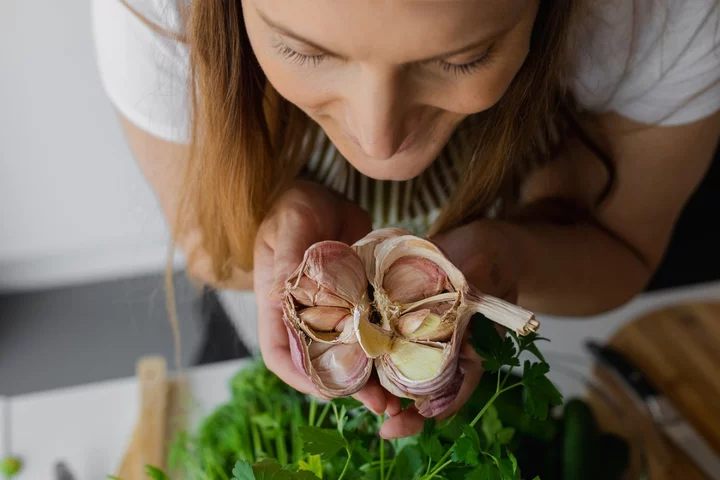
Yoghurt could be the cure for bad garlic breath, study finds
It’s hard to resist garlic sometimes, but its pungent smell can often last long on the tongue and what better way to get rid of it than good old yoghurt? Garlic contains a compound called sulfur volatiles that can cause a bad odour after being eaten. Researchers wanted to better understand how yoghurt and its components can eliminate or reduce such strong odours. For the study, researchers from the Department of Food Science and Technology at Ohio State University, Columbus tested the garlic deodourising capabilities of yoghurt and its individual components of water, fat and protein to see how each stood up to the smell. As a result, the team found both fast and protein were effective at trapping garlic odours, leading the scientists to suggest high-protein foods may one day be formulated specifically to fight garlic breath. “High protein is a very hot thing right now – generally, people want to eat more protein,” said senior study author Sheryl Barringer, professor of food science and technology at the university. “An unintended side benefit may be a high-protein formulation that could be advertised as a breath deodorizer in addition to its nutritional claims,” she said. “I was more excited about the protein’s effectiveness because consumer advice to eat a high-fat food is not going to go over well.” In the lab experiment, researchers placed equal amounts of raw garlic in glass bottles and confirmed the smell of the garlic was released in concentrations that would be detected by the human nose. Scientists measured the levels of volatile molecules in gaseous form present before and after each treatment. It was revealed that garlic alone reduced 99 per cent of the major odour-producing raw garlic volatiles. When introduced separately, the fat, water and protein components of yoghurt also had a deodorising effect on raw garlic, but results showed fat and protein performed better than water. Looking at fat’s performance, a higher quantity of butter fat was more effective at deodorisation. The proteins which were studied included different forms of whey, casein and milk proteins, all of which were effective at deodorising garlic. This may be because of their ability to trap the volatile molecules before they are emitted into the air. A casein micelle-whey protein complex performed the best. “We know proteins bind flavour – a lot of times that’s considered a negative, especially if a food with high protein has less flavour. In this case, it could be a positive,” Barringer said. Additional experiments that involved changing the pH of the yoghurt to make it less acidic (4.4 pH to 7 pH) actually appeared to lower the yoghurt’s deodorisation effect on the garlic. However, changing the pH of water did not seem to make any difference on the water’s deodorization effect. “That’s telling me it goes back to those proteins because as you change pH you change the configuration of proteins and their ability to bind. That said we definitely should be looking at these proteins,” Barringer said. “It probably depends on the protein, as well, because different proteins react differently to pH. So that may be an important thing as we look at other proteins for their garlic deodorization effect.” The team also tested the deodorising effect of yoghurt and its components on fried garlic, in the process they found that drying garlic alone can significantly reduce garlic odour. Yoghurt and its individual ingredients neutralised a lower percentage of volatile compounds of fried garlic compared to raw garlic. Study authors think this may be because there were fewer volatiles to trap than were present in the raw cloves. The findings have provided a foundation for future studies on proteins that might help fight the garlic breath. In the meantime, Barringer predicts that Greek yoghurt, with a higher protein profile than the whole milk plain yoghurt used in the study, may be particularly effective at getting rid of garlic breath. Fruit-flavoured yoghurts will probably work, too, she said – and whatever is used, it must quickly follow ingestion of raw garlic. “With apples, we have always said to eat them immediately,” she added. “The same with yoghurt is presumed to be the case – have your garlic and eat the yoghurt right away.” The study was published in the journal Molecules. Read More 11 best mouthwashes that will keep your mouth minty fresh Women less likely than men to receive CPR from strangers, study finds Study finds toxic ‘forever chemicals’ may be ‘intentionally added’ to some period products Teenager’s death after drinking too much water was ‘preventable’ Could bats hold the secret to beating Covid and cancer? Groundbreaking migraine treatment offers ‘new hope’ for patients
1970-01-01 08:00
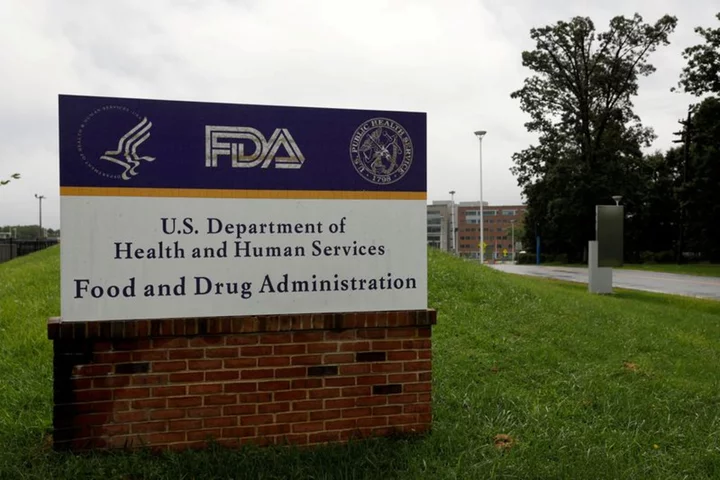
U.S. FDA found lapses at Novo's main U.S. factory in May 2022 -report
By Maggie Fick LONDON (Reuters) -U.S. drug regulators issued a report detailing quality control lapses at Novo Nordisk's main factory
1970-01-01 08:00
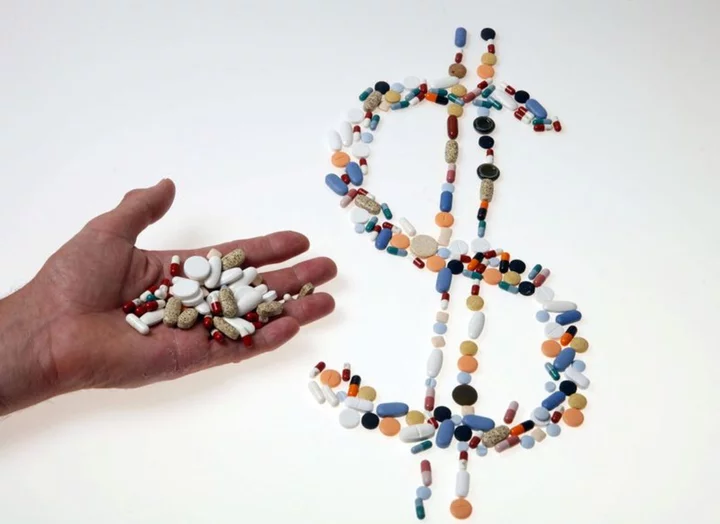
US employers to see biggest healthcare cost jump in a decade in 2024
By Leroy Leo and Khushi Mandowara U.S. employers are bracing for the largest increase in health insurance costs
1970-01-01 08:00

Musk start-up Neuralink seeks people for brain-implant trial
The company hopes to help people with paralysis move a cursor, or type, using its brain implant.
1970-01-01 08:00

Could bats hold the secret to beating Covid and cancer?
Bats could hold the key to unlocking new ways to combat cancer, a new study suggests. A paper published by Oxford University Press, looks at the rapid evolution of bats for their abilities to both host and survive infections such as Covid-19 as well as cancer. The animals are known to have a strong immune system which helps fight off many viruses and diseases. These mammals are also thought to have played a role in the emergence of Covid-19 and scientists say such characteristics are interesting to investigate due to the implications it might have on human health. According to the research, understanding the mechanisms of the bat’s immune system that allows these animals to fight off viral infections – may pave the way to understanding how to prevent disease outbreaks from animals to people. To conduct the study, researchers sequenced the genomes of two bat species - the Jamaican fruit bat and the Mesoamerican mustached bat. The team used advanced technology from Oxford Nanopore Technologies and bat samples collected by the American Museum of Natural History in Belize. They then compared the bat genomes to those of other mammals. The results revealed that bats possessed genetic adaptations in proteins which are related to DNA repair and cancer suppression. It was found that bats had adaptations in six DNA repair-related proteins and 46 cancer-related proteins. The study also found that bats had more than double the number of altered cancer-related genes compared to other mammals, which provided further evidence that they have the ability to suppress cancer. “By generating these new bat genomes and comparing them to other mammals we continue to find extraordinary new adaptations in antiviral and anticancer genes,” said the paper’s lead author, Armin Scheben. “These investigations are the first step towards translating research on the unique biology of bats into insights relevant to understanding and treating ageing and diseases, such as cancer, in humans.” The results open up new paths for understanding and studying the links between cancer and immunity, which offers hope that these insights from bats might possibly lead to new treatments for human illnesses. According to the United States Department of the Interior, there are over 1,400 species of bats worldwide and are mostly found in extreme deserts and polar regions. In the US and Canada, there are about 45 species of bats. Read More British bats ‘can help identify coronaviruses with potential to infect humans’ Coronavirus origins still a mystery 3 years into pandemic Groundbreaking migraine treatment offers ‘new hope’ for patients World Sepsis Day: What is the condition and its symptoms? Duran Duran’s Andy Taylor says he’s ‘asymptomatic’ after end-of-life diagnosis
1970-01-01 08:00
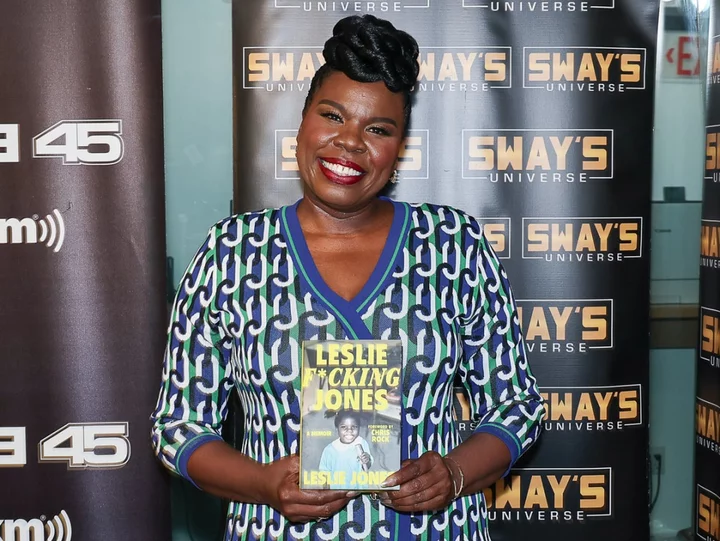
Saturday Night Live alum Leslie Jones reveals she had three abortions in her twenties
Leslie Jones has opened up about her experience with abortion in her new memoir. In her book, Leslie F*cking Jones: A Memoir, which was released on 19 September, the Saturday Night Live alum revealed that she terminated three pregnancies throughout her early to mid-20s. In an excerpt obtained by Page Six, Jones wrote she became pregnant multiple times during her on-again, off-again relationship with a man named Richard Brooks. The first time she had an abortion was when she was 18 and Brooks was 27. According to the outlet, Jones said that their relationship lasted “too many years” and they did not use birth control. By her mid-20s, the comedian had undergone three abortions when she came to the realisation that abortion “is not a birth control method”. “My mom got sick early in my life and she wasn’t there to teach me about [sex education],” Jones wrote, noting that her mother suffered a massive stroke when she was young. The Ghostbusters star added that she wished she had been taught properly about pregnancy prevention and admitted she just “didn’t know any of that stuff”. She eventually learned how to practice safe sex and prevent pregnancy through educational services offered by Planned Parenthood. “I still give money to them to this day,” Jones said about the non-profit. “When I went to Planned Parenthood, I finally learned how to prevent pregnancies and take care of myself. Thank God for those people and what they do.” Speaking about her choice not to have children, Jones recently revealed to People that she developed a fear of childbirth early on, after watching a video in her ninth grade health class. “I remember running all the way home and I looked right at my mom and said: ‘I will never do that!’” Jones recalled. These days, she’s remained steadfast in her decision to be child-free, saying: “I didn’t get married and have kids, but I don’t know if that’s what I wanted. I’ve always wanted to take care of myself.” Jones has previously spoken out against conservative legislators passing restrictive abortion laws across the United States. In 2019, she criticised Alabama’s Human Life Protection Act, which sees women who are the victims of incest or rape unable to get abortions. During an appearance on SNL’s “Weekend Update” segment, she dressed up as one of the characters from the dystopian TV series, The Handmaid’s Tale, to slam the abortion ban. “We are all handmaids now,” she said. ”My name actually is OfJost. But I don’t know how much of a good babymaker I’m going to be, because my eggs are dusty as hell. But I’ll give it a shot.” Jones then took off the robe to reveal a shirt with the word “Mine” on it and an arrow pointing down. She proceeded to speak how the abortion law is only the start of women’s rights being taken away. “The next thing you know, I’m at Starbucks and they won’t take my credit card because I’m a woman, instead of the regular reason which is I don’t have no money on me,” she said. Jones then showed a picture of the 25 white, male Alabama state senators who passed the vote. “Why do all of these weird a** men care what women choose to do with their bodies?” she asked. “When women have a choice, women have freedom,” Jones continued. “The fact that nine states are doing this means this really is a war on women. You can’t tell me what to do with my body.” In June 2022, the US Supreme Court voted to overturn Roe v Wade when it ruled in favour of the state of Mississippi blocking abortion at 15 weeks of pregnancy. The ruling struck down a 50-year precedent established by the landmark Roe v Wade court case, which had guaranteed federal protections for abortion access since 1973. Since then, more than a dozen states have banned abortion or issued restrictions to abortion access. Read More Leslie Jones criticises Alabama abortion ban on SNL: 'This really is a war on women' Planned Parenthood resumes offering abortions in Wisconsin after more than a year Women who were denied emergency abortions file lawsuits in three states: ‘Torture no one should have to face’ US prepares for potential end of Roe v Wade - live When will there be a Roe v Wade decision? Why these prosecutors are refusing to enforce anti-abortion laws
1970-01-01 08:00

Gisele Bündchen opens up about ‘tough’ family times nearly one year after Tom Brady divorce
Gisele Bundchen has reflected on the “tough” times her family has experienced since finalising her divorce from ex-husband Tom Brady. The supermodel, 43, recently opened up to People about the many challenges she and her family have faced in the past year. “It’s been very tough on my family. It’s been a lot - in every area of my life,” she said in the interview published 18 September. Within the last 12 months, Bündchen has navigated co-parenting her two children - son Benjamin, 13, and daughter Vivian, 10, - with ex-husband, retired football star Tom Brady. Before their divorce, which was finalised in October 2022, she relocated her family to Florida for Brady’s three-season stint with the Tampa Bay Buccaneers. While the Victoria’s Secret model has now settled down in Miami, she was reportedly helping her two ailing parents at the same time. “I feel like whenever it rains, it pours,” Bündchen told the outlet. “With all the different twists and turns that life takes, all we can do is the best we can given what happens in our surroundings.” Since moving on from her 13-year marriage with Brady, Bündchen explained that she’s relied on meditation and daily exercise to help her through difficult times. “I work out every single day,” she said, noting how her workout routine includes a mix of walking, yoga, and lifting weights. “I think if I didn’t have all the different tools that I have to support me during these times, it would’ve been very hard,” she added. “And I think we all can relate to that, because I think we all have gone through our roller coasters of life.” The Brazilian model also decided to stop drinking alcohol, and revealed how it’s positively affected her one year later. “Right after I turned 40, actually, I felt a huge difference between when I had the glass of wine and when I didn’t have the glass of wine,” Bündchen said. After cutting alcohol from her diet, she recalled seeing a difference “immediately”. “I became more clear,” she explained. “I felt a bit more foggy before. Now I’m very sharp and very present and I notice things that I didn’t notice before. When I’m not drinking, I’m sleeping much better. You have to be loving to yourself. You ask a lot of your body, you’ve got to do a reset. You have got to take care of this only vehicle you got, right?” Last year, Bündchen and Brady announced they were divorcing after 13 years of marriage. In a social media post shared on 28 October 2022, the former couple revealed they had finalised their divorce, just weeks after it was reported that they had each hired divorce lawyers. “In recent days, my wife and I finalised our divorce from one another after 13 years of marriage. We arrived at this decision amicably and with gratitude for the time we spent together,” Brady wrote in a statement shared to Instagram. “We are blessed with beautiful and wonderful children who will continue to be the centre of our world in every day. We will continue to work together as parents to always ensure they receive the love and attention they deserve.” According to People, the couple agreed on joint custody of their children. In addition to their children Benjamin and Vivian, Brady also shares son John, 16, with ex Bridget Moynahan. In the post, the football quarterback said that he and Bündchen arrived at the decision to end their marriage “after much consideration”. “Doing so is, of course, painful and difficult, like it is for many people who go through the same thing every day around the world,” he continued. “However, we wish only the best for each other as we pursue whatever new chapters in our lives that are yet to be written.” Bündchen also shared the news in a statement of her own, which she shared to Instagram. “With much gratitude for our time together, Tom and I have amicably finalised our divorce. My priority has always been and will continue to be our children whom I love with all my heart,” she wrote. “We will continue co-parenting to give them the love, care and attention they greatly deserve.” In her statement, the supermodel acknowledged that the decision to end a marriage is “never easy,” but that she and Brady have “grown apart”. “And while it is, of course, difficult to go through something like this, I feel blessed for the time we had together and only wish the best for Tom always,” she continued. “I kindly ask that our privacy be respected during this sensitive time.” Their divorce announcement came amid speculation that Brady’s decision to unretire from the NFL in March 2022, after he previously announced his retirement in February that same year, had put a strain on their relationship. Bündchen further fuelled speculation that her husband’s career may have contributed to their marital struggles when she explained in an interview with Elle that she believes she’s done her “part” supporting her husband and their family. “I’ve done my part, which is [to] be there for [Tom]. I moved to Boston, and I focused on creating a cocoon and a loving environment for my children to grow up in and to be there supporting him and his dreams,” she said in the interview published one month before their separation. “Seeing my children succeed and become the beautiful little humans that they are, seeing him succeed, and being fulfilled in his career - it makes me happy. “At this point in my life, I feel like I’ve done a good job on that,” Bündchen added, before noting that she feels like it is now her “turn” to focus on her career. “And now it’s going to be my turn. It’s not like I’m going to be in the valley forever.” Since then, the mother of two has revealed how she and Brady have navigated co-parenting their children following their divorce. “We’re not playing against each other,” Bündchen told Vanity Fair last March. “We are a team, and that’s beautiful. I look back and I have no regrets. I loved every bit of it.” Read More Gisele Bündchen reveals why she hasn’t had alcohol in two years Tom Brady pays tribute to exes Gisele Bündchen and Bridget Moynahan on Mothers’ Day Tom Brady and Gisele Bundchen plan to ‘keep things drama-free for the kids’ following divorce Placenta abnormalities could be the reason for miscarriages, study suggests Nearly a fifth of parents fear children will ignore health issues while at university Brits feel their mental health declining due to cost of living crisis
1970-01-01 08:00
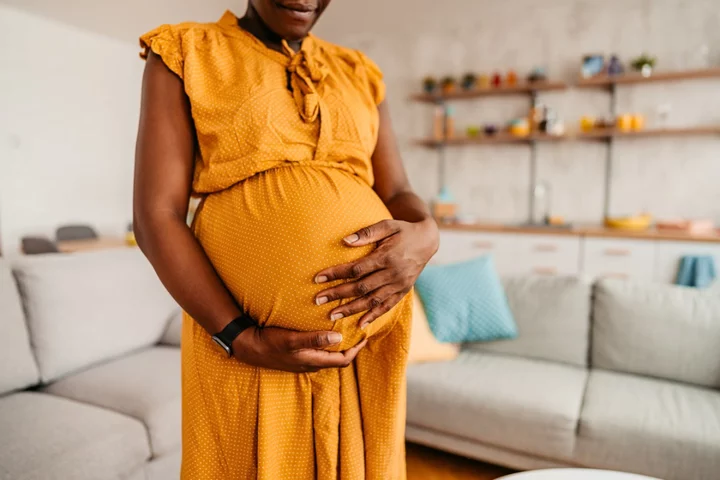
Placenta abnormalities could be the reason for miscarriages, study suggests
A new study has found that placenta abnormalities could be the reason for miscarriages. In the United States, there are approximately 5 million pregnancies per year with 1 million ending in a miscarriage and over 20,000 ending in stillbirth, according to a paper published in the journal Reproductive Sciences. “To have a pregnancy loss is a tragedy. To be told there is no explanation adds tremendous pain for these loss families,” said senior author of the paper and research scientist at Yale School of Medicine, Dr Harvey Kliman “Our goal was to expand the current classification systems to decrease the number of cases that remained unspecified.” For the study, researchers worked to create a classification system for miscarriages based on a test that examines a sample of the body’s tissues – known as pathologic examination. The team looked at a series of 1,527 single-child pregnancies that ended in miscarriage, and the data was then sent to Yale for evaluation. After excluding cases without adequate material for examination, 1,256 placentas from 922 patients were examined. Of these, 70 per cent were miscarriages and 30 per cent were stillbirths. By adding the explicit categories of “placenta with abnormal development” (dysmorphic placentas) and “small placenta” (a placenta less than the 10th percentile for gestational age) to other incidents such as cord accident, abruption, thrombotic, and infection – researchers were able to determine the results of 91.6 per cent of the pregnancies, including 88.5 per cent of the miscarriages and 98.7 per cent of the stillbirths. The most common results for unexplained miscarriages were dysmorphic placentas (placenta with abnormal development) which was around 86.2 per cent. For stillbirths, there was 33.9 per cent due to a small placenta. “This work suggests that the over 7,000 small placentas per year associated with stillbirths could have been detected in utero — flagging those pregnancies as high risk prior to the loss,” said Dr Kliman. “Likewise, the identification of dysmorphic placentas may be one way to potentially identify genetic abnormalities in the almost 1 million miscarriages that occur in our country every year.” He said having a definite explanation “for a pregnancy loss helps the family understand that their loss was not their fault, allows them to start the healing process, and, when possible, prevent similar losses — especially stillbirths — from occurring in the future.” When asked what the most effective way might be to prevent stillbirths, Dr Kliman responded, “Measure the placenta!” Read More 'Please, keep beating little heart': Man gives raw account of wife's miscarriage and fears for new unborn child Woman who had six miscarriages celebrates pregnancy with rainbow baby photoshoot Miscarriage: The loneliest grief of all Nearly a fifth of parents fear children will ignore health issues while at university Brits feel their mental health declining due to cost of living crisis How often should you wash your pyjamas?
1970-01-01 08:00

Brits struggle with mental health due to cost of living crisis
People in Edinburgh, Leicester and Glasgow are struggling the most with their mental health - due to the cost of living crisis. A poll of 2,000 adults found 27 per cent have really taken a hit when it comes to their wellbeing, because of a lack of finances. Newcastle, London and Leeds are other key cities where people are most affected. Cutting down on socialising, gym memberships and nutritious food to save money are reasons why so many feel disheartened and worried about their mental wellbeing. And 40 per cent are dreading the winter as they are unsure if they will be able to afford energy bills to heat their home. The survey was commissioned by British Gas, which is working with Professor Green to raise awareness of the struggles so many are facing and highlight the free support available in the new phase of the British Gas Post Office Pop-Ups. The musician and mental health advocate said: “As a parent your first instinct is to protect and provide, and when you’re doing everything you can, and that’s still not enough, it has a profound impact on your mental health. “Shame, stigma and fear can keep people from speaking up for help, but it’s the best thing you can do – for yourself, your family and your community. “Stress and anxiety breed in uncertainty so I really encourage you to visit a British Gas Post Office Pop-Up or contact the British Gas Energy Trust to help you gain confidence in, and control of, your future.“ The research found 14 per cent of adults are cutting back on how often they shower to lower their bills, and 21 per cent aren’t buying birthday gifts for loved ones. One in 20 (five per cent) say their kids are missing out on new toys. Just over half (55 per cent) believe their mental health would definitely improve if they were more financially stable. People in Manchester were found to be most likely to skip using heat or electricity to keep their homes warm. But those in Edinburgh were most likely to report that they have had issues with money that have led to incurring additional debt, like credit cards. Only 27 per cent of all adults polled via OnePoll are confident they are accessing all the benefits they may be entitled to when it comes to support with their energy bills. One in 10 also believe the rising cost of energy has caused them a great deal of additional stress. And 25 per cent baldly state they are expecting to struggle to pay their energy bills through the rest of the year. Nearly the same amount (24 per cent) said the current cost of living crisis has been just as bad for their mental health as the Covid-19 pandemic. British Gas Energy Trust CEO Jessica Taplin said: “Debt and money stresses are debilitating, which is why we are delighted to be offering money and energy advisors funded by us in Post Offices across the country. “Working with an artist like Professor Green can really help raise awareness, and let people know it’s good to talk about the things that are worrying them.” Read More Voguewashing London Fashion Week won’t pay the wages of Britain’s young fashion designers What is happening to local government finances and why are councils struggling? ‘School staff seeing more students who do not have enough dinner money’ Nearly a fifth of parents fear children will ignore health issues while at university How often should you wash your pyjamas? ‘My baby’s blue eyes drew praise – but their colour was a warning sign’
1970-01-01 08:00
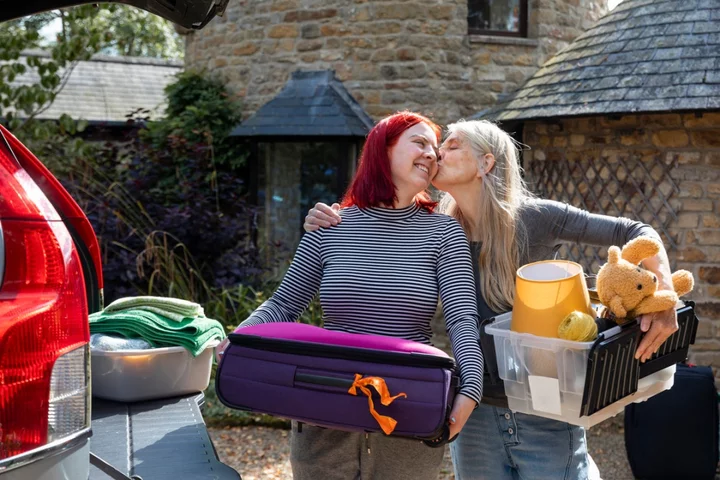
Nearly a fifth of parents fear children will ignore health issues while at university
Nearly a fifth of parents fear their teenager will ignore a health issue while at university, as many self-diagnose on Google, research has found. Just 13 per cent of the 2,000 parents polled think their son or daughter would consult a proper doctor as soon as they feel unwell. More than one in 10 (12 per cent) think their offspring would be too lazy to seek medical attention, and 11 per cent fear they do not make their health a priority. The study of parents whose children either attend university, have done in the past or plan to soon, by Bupa Family+, also found that many (53 per cent) said their child thinks they are ‘invincible’ and nothing bad will ever happen to them. And as thousands of students prepare to start university, 56 per cent of parents feel excited for their child while 41 per cent are anxious. Dr Naveen Puri, GP and spokesperson for Bupa Family+, which commissioned the research to support the launch of its Family+ insurance proposition built around savings on health insurance for families, said: “All parents worry about their children, whatever their age. “But it can be especially difficult when they move out for the first time and become more independent – and you are no longer nearby to help them. “As a child and even a young adult, when you are unwell or have a health issue, your parents are often your first port of call, or even the ones spotting something is wrong in the first place. “They are usually the ones pointing you in the right direction, sorting appointments and arranging medication you might need. “Moving out or going to university is both an exciting and daunting time for all the family and we hope our new Family+ cover, which also insures older children, will help provide peace of mind to parents and their children alike.” It also emerged that parents’ top fears for their children as they embark on life away from the family home include their financial situation (44 per cent), their mental health (43 per cent), and whether they will be lonely (43 per cent). Others worry about who they will be spending time with (31 per cent), if they’ll know how to look after themselves (32 per cent) and what they’ll do when they feel unwell (23 per cent). And 64 per cent of those who have a child who has already left home admitted they have even lost sleep worrying about them. It emerged that 55 per cent think they would still be the first port of call for help or advice if their child felt unwell despite no longer living under the same roof. Ahead of them moving out, 63 per cent of parents will teach them how to manage their finances, while 59 per cent give tips on how to cook healthy meals. Others show their child how to use a washing machine (56 per cent), how to drink responsibly (40 per cent) and how to deal with mental health concerns (43 per cent). The study, carried out via OnePoll, also revealed girls are considered more likely to take care of their physical (43 per cent) and mental (41 per cent) health than boys (13 per cent and 11 per cent). Dr Naveen Puri, GP and spokesperson for Bupa Family+ said: “Our health is so important, and it can be worrying for parents that their child may be unwell when they aren’t there to help. “Making sure they have the knowledge about what to do in different health situations is a great way of not only ensuring they can look after themselves but also allows you to relax a little knowing they have the tools they need.” Here are the top reasons why parents worry their child would ignore health issues: 1. Googling and self-diagnosing 2. Being too lazy 3. Health is not a priority 4. Embarrassed to talk about their health 5. Worried a GP would judge them Read More ‘It can be hard when your kids leave the nest,’ mother says as study finds parents want their children back How to cope with anxiety during university How often should you wash your pyjamas? ‘My baby’s blue eyes drew praise – but their colour was a warning sign’ Brits get itchy feet in their home after five years, study finds
1970-01-01 08:00
